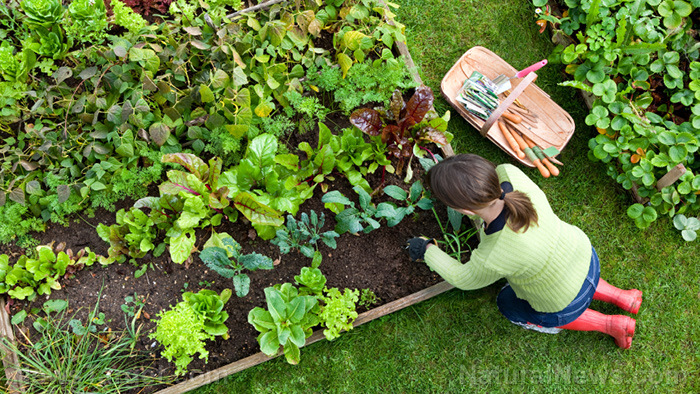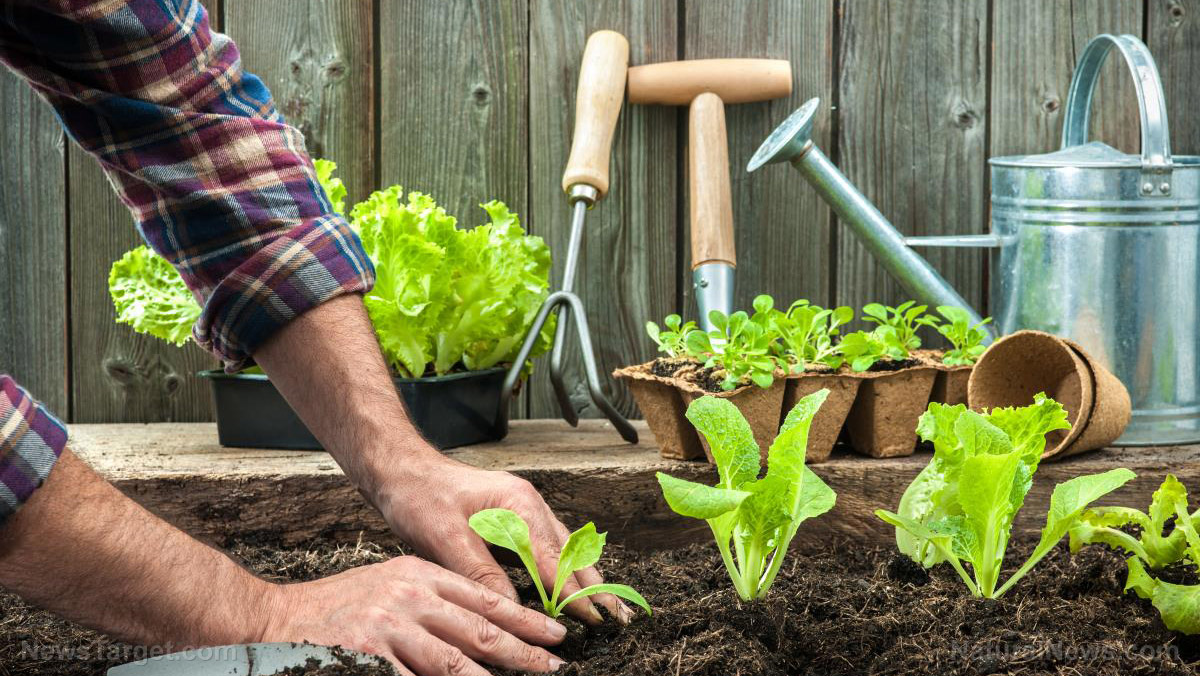12 Ways to reduce plastic waste in your garden

(Natural News) Plastic has a much bigger role in gardens than one might realize. From disposable seed packets to plastic pots, the presence of plastic in small home gardens is more ubiquitous than it seems at first glance.
Its impact can be just as big, too. Health and gardening expert Susannah Shmurak notes that hundreds of thousands of pounds of horticultural plastic often end up in landfills across the U.S. These include plastic from artificial fertilizers, landscape fabric and gardening tools.
To minimize gardeners’ contribution to landfills, Shmurak notes that it’s important to keep plastic out of the garden in the first place instead of just repurposing it. Doing so also slashes the demand for horticultural plastics, thus discouraging their production.
Tips on reducing plastic waste in the garden
Gardeners can do a number of things to reduce their total amount of plastic used on a regular basis. In one of her recent gardening articles published online, Shmurak shares 12 tried-and-tested tips for reducing plastic waste in the garden:
Use homemade fertilizer
Plastic in chemical fertilizers can leach into the soil and pollute it. Instead of purchasing those, get into the habit of creating homemade fertilizer using organic material, such as kitchen scraps, fruit peels, eggshells, pet droppings and the like. (Related: For the organic farmer: Grow healthier plants with organic fertilizer mixed with compost tea.)
Skip bagged mulch
Mulch is great for keeping the soil moist and adding more nutrients and organic matter to the soil. But skip the bagged ones in garden centers. Instead, just repurpose grass clippings, pine needles, compost and other organic materials already lying around in the garden.
Steer clear of plastic pots
Plastic pots had been a game-changer at the time of their introduction, but millions of these pots often just end up in landfills. Opt for the biodegradable terracotta and ceramic pots or repurpose broken ones.
Pick non-plastic containers
Choosing plastic-free substitutes isn’t just applicable to pots; it also goes for planters and other larger containers. On top of using terracotta and ceramic potteries, gardeners can also repurpose old metal tubs, buckets and barrels.
Choose metal tools
Opt for metal tools that far outlast their plastic counterparts. Remember: metal can rust, so be sure to clean the tools after each use.
Share tools
Gardeners might also find it best to share their tools with fellow gardeners and neighbors. If possible, encourage them to do the same as this reduces the need to purchase new tools.
Use cardboard and paper for stamping out weeds
Plastic sheeting and landscape fabric are also big contributors to plastic pollution in the garden. Instead of using these to suppress weed growth, smother weeds with cardboard and paper covered with mulch.
Recycle materials into plant markers
Repurpose old toothbrushes, used popsicle sticks, shards of broken potteries and the like into plant markers.
Skip plastic seed packets
Instead of purchasing seeds in plastic packets and contributing to more plastic pollution, look for packets made of paper. It is also good practice to keep and store seeds from fresh produce used for cooking or ask neighbors to share some of their seeds.
Get plastic-free raised beds
Raised beds cut gardeners some slack in maintaining soil and plant health, but these are often made of plastic. Build one from pallets or purchase those made from good quality wood.
Use rain barrels or metal cans for watering
Water storage containers and watering cans tend to be made of plastic. To keep the garden plastic-free, store water in wooden rain barrels and use a strong and durable metal can for hand watering.
Build a plastic-free compost bin
As with raised beds and water containers, compost bins are also often made using plastic. Opt for the non-plastic varieties or build one from scratch using pallets and wood scraps.
Making simple changes like using homemade compost and fertilizer or choosing metal gardening tools can reduce one’s contribution to the tons of horticultural plastic that end up in landfills.
Learn more about reducing plastic use in the garden and keeping it plastic-free at HomeGardeningNews.com.
Sources include:



